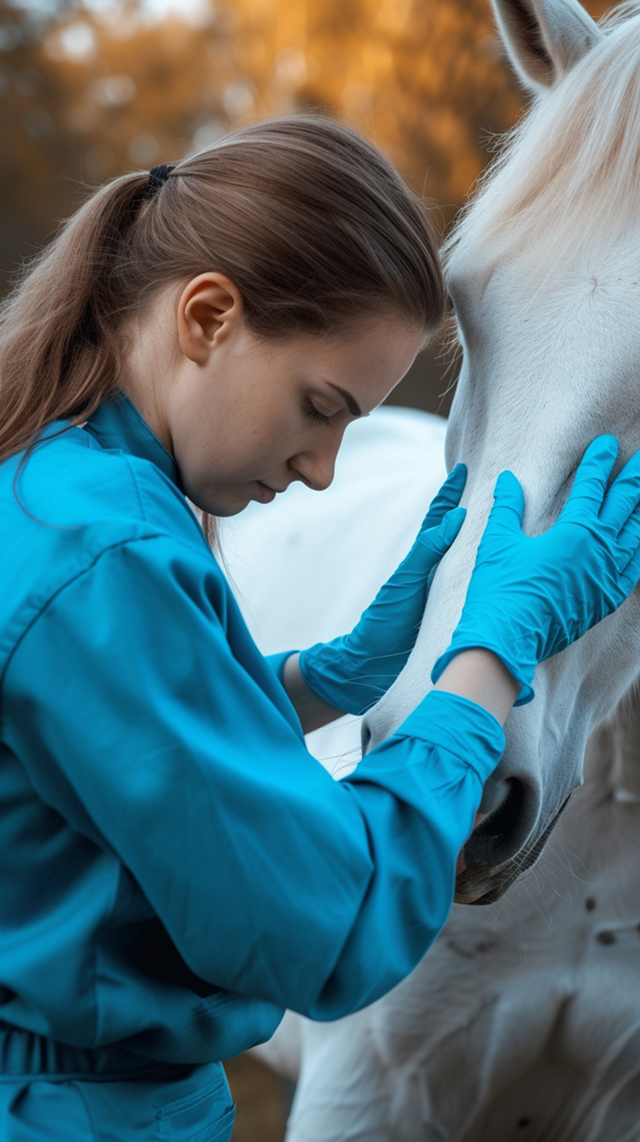Empowering Pet Health: The Modern Vet's Guide to Vaccination Strategies in the realm of pet health, prevention is undeniably the key to maintaining a long and healthy life for our beloved
companions. Among the most effective preventative measures available are vaccinations, which have drastically reduced the incidence of life-threatening diseases in both dogs and cats since their development. This article aims to provide insight into the current vaccination strategies employed by modern veterinary professionals, empowering pet owners to make informed decisions about their pets' health care.
Historical Perspective
Over the past century, advancements in veterinary medicine have led to the development and refinement of vaccines against a variety of pathogens. In the early days, vaccines were largely designed to protect animals against fatal conditions such as distemper, hepatitis, and parvovirus in dogs, and feline panleukopenia, herpes virus, and calicivirus in cats. Today, while these diseases still pose a significant threat, many more conditions can be controlled or prevented via vaccination.
Understanding Vaccine Types
To better comprehend vaccination strategies, it is essential to understand the two primary types of vaccines in use today: killed and living modified live virus (MLV) vaccines.
Killed Vaccines
As the name implies, killed vaccines contain dead viral or bacterial components. These vaccines cannot replicate within the recipient's body, but they stimulate an immune response by exposing the immune system to foreign antigens. Killed vaccines typically require multiple doses, given at regular intervals, to achieve adequate immunity.
Living Modified Live Virus (MLV) Vaccines
MLV vaccines use weakened or attenuated forms of the virus. Although these viruses are unable to cause disease in healthy animals, they can replicate within the body, thereby stimulating a more robust immune response. With MLV vaccines, a single dose is often sufficient to provide long-term protection.
Current Vaccination Strategies
In recent years, there has been a growing movement towards individualized vaccine protocols tailored to each pet's unique lifestyle, age, health status, and geographical location. This approach aims to minimize the risks associated with over-vaccination while maintaining effective protection against common diseases.
Core Vaccines
Core vaccines are those considered essential for every pet. These typically include:
- Canine Distemper, Parvovirus, Adenovirus-2 (Hepatitis), Para-influenza, and Rabies (DAPPv / DA2PP): These vaccines protect dogs against a wide array of common and often fatal viral diseases. The rabies vaccine is mandatory in many areas and is crucial in preventing this devastating and contagious viral disease from spreading.
- Feline Panleukopenia, Herpes Virus, Calicivirus (FVRCP): This combination vaccine guards cats against three major feline viruses that can cause severe and sometimes fatal diseases.
Non-Core Vaccines
Non-core vaccines are those that may be recommended based on the pet's individual lifestyle, age, geographical location, or other factors. Some examples include:
- Canine Bordetella (Kennel Cough): Recommended for dogs that frequent places with high dog traffic, such as dog parks, kennels, and grooming salons, the Bordetella vaccine helps protect against kennel cough, a highly contagious upper respiratory infection.
- Feline Leukemia (FeLV): This vaccine is primarily recommended for cats that spend time outdoors or live in multi-cat households where the disease is prevalent.
- Canine Influenza: Recommended for dogs that participate in activities where they may have contact with other dogs, such as showing, daycare, and boarding facilities, this vaccine protects against canine influenza.
Consultation with Your Veterinarian
Thus, as a pet owner, it is essential to discuss your pet's lifestyle, potential risk factors, vaccination history, and any concerns you may have with your veterinarian. Based on this information, your veterinarian can provide guidance on an appropriate vaccination schedule and help ensure that your pet remains protected against preventable diseases while minimizing any potential risks.
Proactive pet care is an invaluable investment in your pet's health, and vaccination is a key component of this care. By understanding the current state of vaccination strategies and actively engaging in discussions with your veterinarian, you can make informed decisions that contribute to your pet's overall health and well-being.









